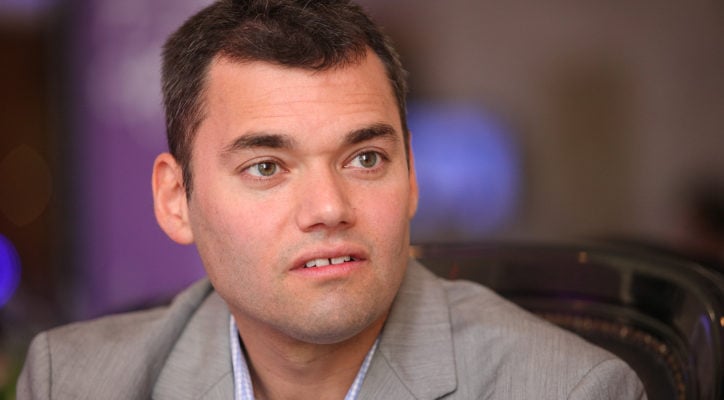“They’re depending on the race conversation in the United States and the Israel-Palestine conversation being segmented, separated off from one another, and I don’t think it can be,” said Beinart.
By Josh Plank, World Israel News
American-Jewish writer Peter Beinart revealed the impact he feels the Black Lives Matter movement will have on the Israeli-Palestinian discussion in the U.S. in an interview with Chemi Shalev of Haaretz on Wednesday.
“I think the Black Lives Matter ethos is going to have significant effect on the Israel-Palestine conversation, because I think it really brings to the fore questions of privilege in American political conversation,” Beinart said.
Shalev asked Beinart if he was taking terms used by Black Lives Matter and artificially importing those values and terms to the Israeli-Palestinian conflict which has traditionally not been a struggle for rights and justice, but a win-lose battle over a piece of land.
“I’m not trying to import an American model, but I do think that there are certain principles that apply all across the world,” Beinart said.
He said these principles include “the right to be a citizen of the country in which you live; the right to live equally regardless of your race, ethnicity, or gender; the right to some historical justice for wrongs that were done to you.”
Beinart said that putting aside the Jewish Right, the mainstream Jewish establishment in the U.S. has basically endorsed Black Lives Matter and the importance of dealing with racial justice.
“I think the problem, whether they recognize it or not,” said Beinart, “is that if you apply some of those principles that Black Lives Matter is talking about vis-à-vis the United States to the Israel-Palestine conversation, that is a very, very serious problem for those American Jewish organizations.”
“They’re depending on the race conversation in the United States and the Israel-Palestine conversation being segmented, separated off from one another, and I don’t think it can be,” he said.
Beinart said that “the consequences of Black Lives Matter, not just in terms of what Black Lives Matter says about Israel-Palestine itself, but the worldview, the ethos is going to have a real impact.”
During the interview, Beinart called President Donald Trump “openly bigoted” and said, “The long-term effect of Trump’s association with Netanyahu has accelerated the American Left seeing Israel in a more negative light, and that’s true for progressive American Jews, too.”
Beinhart said that he would advise Democrat presidential candidate Joe Biden to “stop talking about the two-state solution,” and instead, “start talking about rights, equality, justice, principle.”
“The two-state solution is too distant a prospect for you to make it your focus, and you should try to lay out a set of ethical principles that you believe that Israeli Jews and Palestinians can strive for. That’s where I hope all Democrats would go,” he said.
Beinart, a longtime advocate for a two-state solution to the Israeli-Palestinian conflict, suddenly reversed his position earlier this month.
“I just knew from myself, as someone who had been making a certain set of arguments, that I could tell that those arguments were not convincing me as much anymore,” he told Haaretz.
“What else can one do? The world changes, so one’s views about things have to change in response to events,” he said.
On July 8, The New York Times published an op-ed by Beinart titled, “I No Longer Believe in a Jewish State,” in which he called for a single state of Israel-Palestine that “can be a Jewish home that is also, equally, a Palestinian home.” Though he no longer believes in a Jewish state, he says he is still a Zionist.
On July 7, he published an essay in Jewish Currents titled, “Yavne: A Jewish Case for Equality in Israel-Palestine.”
In his essay, Beinart asserted the superiority of political movements that demand racial equality over those that seek national independence.
“Many of the political movements from the last century that spoke in the language of national independence — from Algeria’s National Liberation Front to the Vietcong — have faded as models. But the demand for equality — as manifested in the civil rights movement, the anti-apartheid movement, and the Black Lives Matter movement — retains enormous moral power,” he said.





